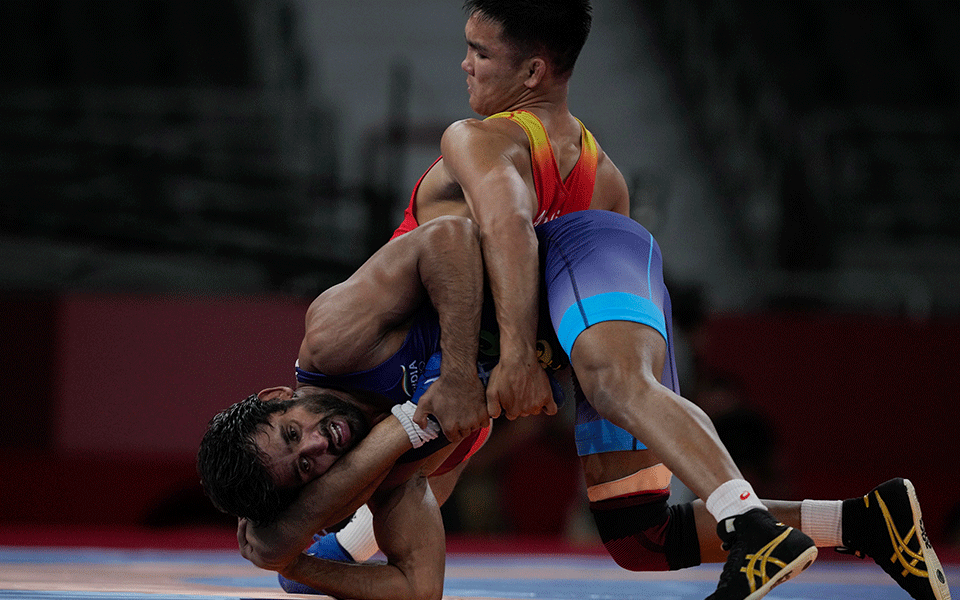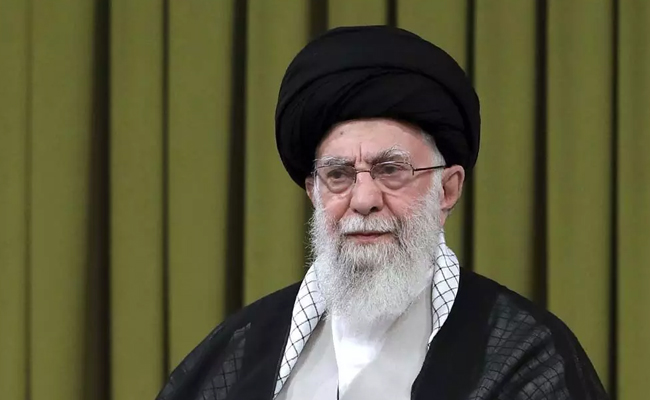Chiba (Japan): True to his style, Bajrang Punia put his tactical acumen and strength to good use in the second period to pin Iran's Morteza Cheka Ghiasi for a semifinal berth in the men's free-style 65kg event which took him closer to an Olympic medal on debut, here on Friday.
Bajrang trailed the Iranian for a major part of the bout after being severely crippled by Ghiasi's defensive tactics, especially the body-locks.
Twice Bajrang was put on activity clock and also left to defend his right leg when Ghiasi got hold of it.
As the second period moved towards the final minute, Ghiasi looked like making a dangerous move when he got hold of Bajrang's right leg and almost pulled off a take down.
But Bajrang not only wriggled out of that clutch, he locked the neck of Ghiasi and moved into a position from where he turned his rival, pushed him on the mat and held him with his immense strength to emerge victorious by fall.
He will now fight it out with Azerbaijan's Haji Aliev for a place in the gold medal bout. Aliev is three-time world champion and bronze-winner from the Rio Games.
Before this bout, a timely take-down move helped him beat Kyrgyzstan's Ernazar Akmataliev in his opening bout.
Just before the end of the first period put the Indian ahead 3-1 but Akmataliev ran Bajrang close in the second period, getting two push-out points to level the scores.
Since Bajrang had the high scoring move, a two-pointer take down, he was declared winner on criteria.
It was not the most clean and fluent victories that he is known for, but was just enough for Bajrang, who came into the Games after suffering a minor knee injury during a local Russian tournament.
Debutant Indian wrestler Seema Bisla could not find a way to get out of the defensive trap of Tunisia's Sarra Hamdi and lost her 50kg opening round 1-3.
The 27-year-old could not make her moves as Hamdi applied the body lock to great effect, never allowing Seema to initiate a strong attack.
There hardly any moves in the bout with Hamdi getting two of her three points on push out and one on Seema's passivity.
Seema got on board when she too pushed her rival out after being put on activity clock for a second time.
The Tunisian later lost her next bout, which drew curtains on Seema's campaign.
The Rohtak grappler had not even won a national event till 2017 but went on to secure her berth for the Games by winning the World Olympic Qualifier, held in Sofia in May.
Let the Truth be known. If you read VB and like VB, please be a VB Supporter and Help us deliver the Truth to one and all.
Dubai/Abu Dhabi: Residents and visitors across the United Arab Emirates received a fresh emergency alert on their mobile phones stating that the situation in the country is currently safe.
The message, issued by the Ministry of Interior (MOI), thanked people for their cooperation and reassured them that conditions were stable.
“Thank you for your cooperation. We reassure you that the situation is currently safe. You may resume your normal activities while continuing to remain cautious and take the necessary precautions, and to follow official instructions. (MOI),” the alert read.
The notification was sent in both Arabic and English through the country’s emergency alert system.
The advisory comes after earlier alerts warning of potential missile threats amid rising regional tensions. Authorities have urged the public to stay cautious and follow official guidance.





